
El Poblado: Medellín's Vibrant Heartbeat
Welcome to El Poblado, the bustling epicenter of Medellín, Colombia. Known for its dynamic atmosphere, this neighbourhood perfectly blends modernity with a rich cultural heritage. From its high-end shopping malls to its trendy cafes and gourmet restaurants, El Poblado caters to every tourist's taste. As you stroll through its tree-lined streets, you'll encounter a mix of chic boutiques, art galleries, and vibrant nightlife, making it a hotspot for both day and night activities. El Poblado is not just about luxury and entertainment; it also offers a peek into Medellín's history. The area is home to several parks and green spaces, providing a serene escape from the urban hustle. Parque Lleras, the heart of El Poblado, is a popular meeting point for both locals and tourists. Here, you can relax under the shade of tropical trees, enjoy street performances, and sample local delicacies from nearby food stalls. For a more immersive experience, visit the Museo de Arte Moderno de Medellín, which showcases contemporary Colombian art. Not far from there, you'll find the El Castillo Museum, a European-style castle that offers stunning views of the city. Whether you're an art lover, a foodie, or just someone looking to soak in the local culture, El Poblado has something for everyone.
Local tips in El Poblado
- Visit Parque Lleras in the evening for a lively atmosphere with street performers and food stalls.
- Explore the local art scene at the Museo de Arte Moderno de Medellín.
- Take a walk through the tree-lined streets to discover chic boutiques and trendy cafes.
- Enjoy panoramic city views from the El Castillo Museum.
- Try local delicacies at the various gourmet restaurants scattered throughout the neighbourhood.
El Poblado: Medellín's Vibrant Heartbeat
Welcome to El Poblado, the bustling epicenter of Medellín, Colombia. Known for its dynamic atmosphere, this neighbourhood perfectly blends modernity with a rich cultural heritage. From its high-end shopping malls to its trendy cafes and gourmet restaurants, El Poblado caters to every tourist's taste. As you stroll through its tree-lined streets, you'll encounter a mix of chic boutiques, art galleries, and vibrant nightlife, making it a hotspot for both day and night activities. El Poblado is not just about luxury and entertainment; it also offers a peek into Medellín's history. The area is home to several parks and green spaces, providing a serene escape from the urban hustle. Parque Lleras, the heart of El Poblado, is a popular meeting point for both locals and tourists. Here, you can relax under the shade of tropical trees, enjoy street performances, and sample local delicacies from nearby food stalls. For a more immersive experience, visit the Museo de Arte Moderno de Medellín, which showcases contemporary Colombian art. Not far from there, you'll find the El Castillo Museum, a European-style castle that offers stunning views of the city. Whether you're an art lover, a foodie, or just someone looking to soak in the local culture, El Poblado has something for everyone.
Iconic landmarks you can’t miss
Pueblito Paisa
Discover Pueblito Paisa, a picturesque recreation of an Antioquian village offering stunning views and cultural experiences in Medellín.
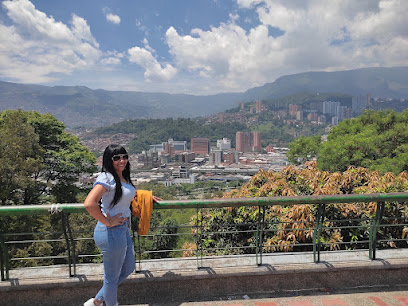
Jardín Botánico de Medellín
Explore the stunning Jardín Botánico de Medellín, a serene botanical garden and science museum filled with Colombia's rich flora and vibrant greenery.
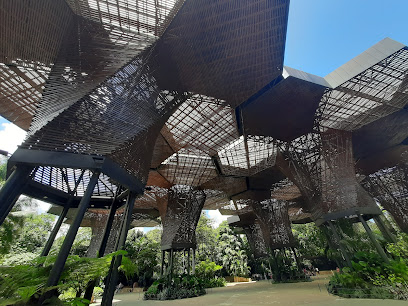
Plaza Botero - Medellín, Antioquia
Experience the artistic heart of Medellín at Plaza Botero, featuring iconic sculptures by Fernando Botero amidst a vibrant cultural atmosphere.
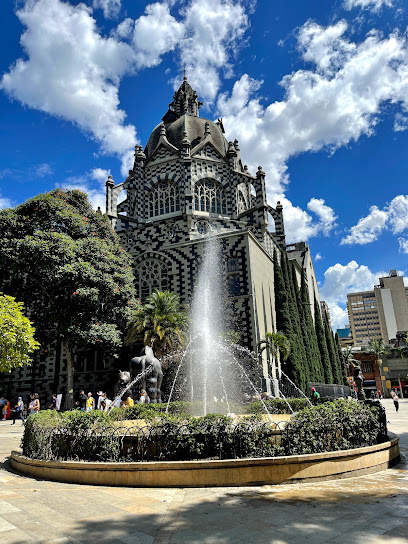
Parque de El Poblado
Explore Parque de El Poblado: Medellín's lush urban park offering tranquility, culture, and community engagement amidst stunning natural beauty.
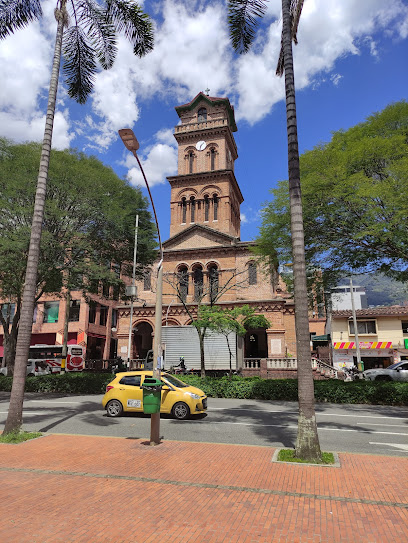
Lleras Park
Discover the vibrant essence of Medellín at Lleras Park, a lively urban oasis filled with nightlife, dining, and cultural experiences in El Poblado.
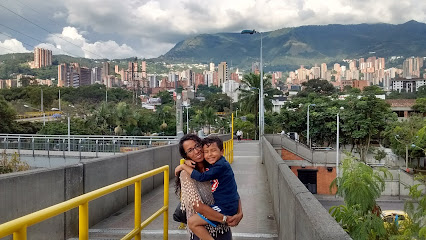
El Castillo Museum and Gardens
Explore El Castillo Museum and Gardens in Medellín, where history and beauty intertwine in a stunning architectural masterpiece.

El Palacio egipcio
Discover the enchanting El Palacio Egipcio in Medellín, a historical landmark and heritage museum showcasing rich cultural history and stunning architecture.
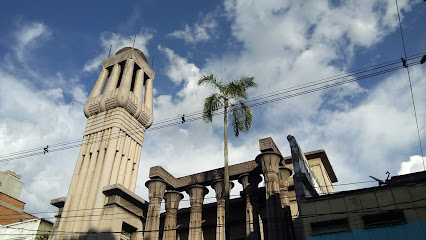
Parroquia San José del Poblado
Discover the historical charm of Parroquia San José del Poblado, the oldest parish in Medellín, blending stunning architecture and a serene atmosphere.
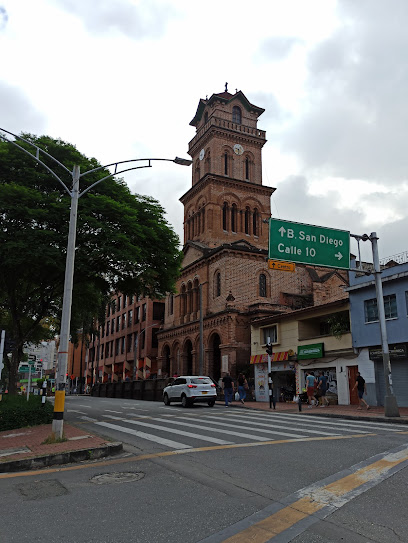
Inflexión Memorial Park
Explore the serene landscapes and rich history of Inflexión Memorial Park, a tranquil retreat in the heart of Medellín, perfect for relaxation and cultural discovery.
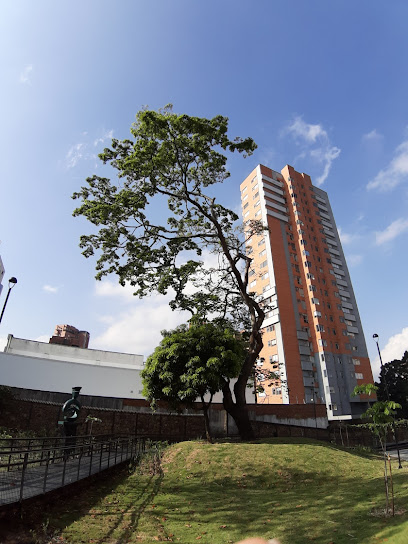
Plazoleta Arqueologicia
Explore Plazoleta Arqueologicia in El Poblado, Medellín, a historical landmark that beautifully showcases the region's archaeological heritage.
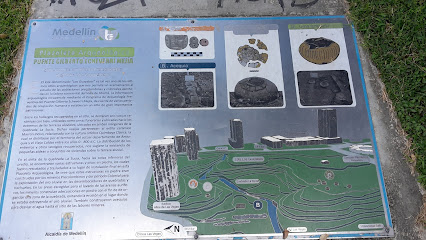
Unmissable attractions to see
Parque de El Poblado
Discover tranquility and culture in Parque de El Poblado, Medellín's historic heart, offering a vibrant escape and a glimpse into the city's origins.
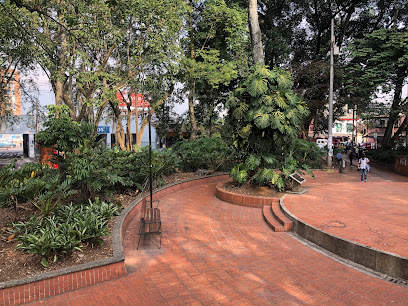
Lleras Park
Experience Medellín's vibrant nightlife and culture in Lleras Park, a lively urban oasis in the heart of El Poblado.
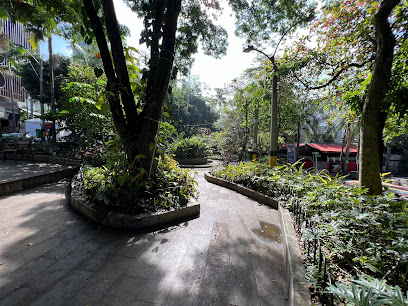
El Castillo Museum and Gardens
Discover a European-style castle in the heart of Medellín, showcasing art, history, and stunning gardens inspired by the Loire Valley.

Ciudad del Río Lineal Park
Escape to Medellín's vibrant Ciudad del Río Lineal Park: where art, nature, and tranquility meet along the Medellín River.
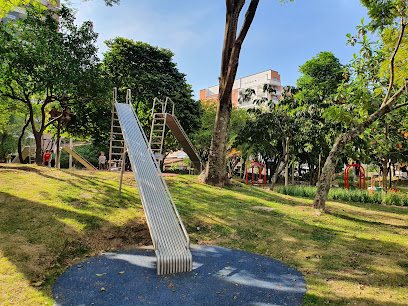
Parque de la bailarina
Discover tranquility and art at Parque de la Bailarina in Medellín's El Poblado, a serene escape with beautiful gardens and cultural events.
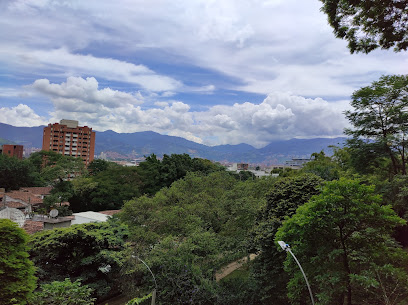
Presidenta Park
Escape the city bustle in Medellín's Presidenta Park, a green haven with walking trails, vibrant flora, and a lively community atmosphere.
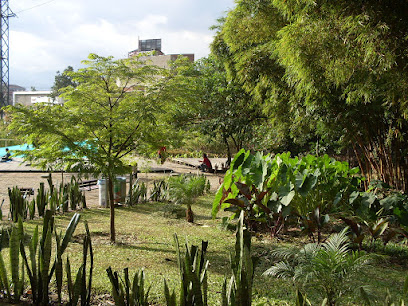
Pictopia graffiti
Explore Medellín's vibrant street art scene at Pictopia Graffiti, a colorful open-air gallery in El Poblado showcasing local and international artists.
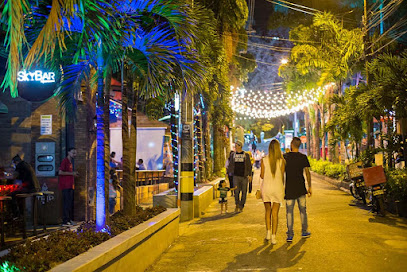
señal de Medellín
Experience breathtaking views and vibrant culture at Medellín's iconic Señal, a must-see landmark in the heart of El Poblado.
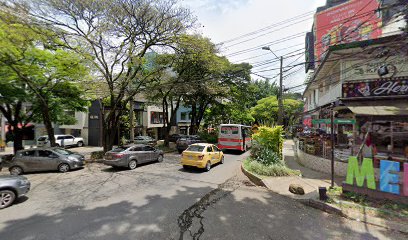
Pano360 - El Poblado
Experience breathtaking panoramic views and delve into Medellín's vibrant culture at Pano360, a must-visit attraction in El Poblado.
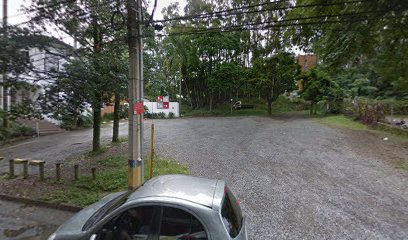
Essential places to dine
Restaurante Mondongo's El Poblado
Experience authentic Colombian cuisine at Mondongo's El Poblado - where tradition meets taste in every delicious bite.
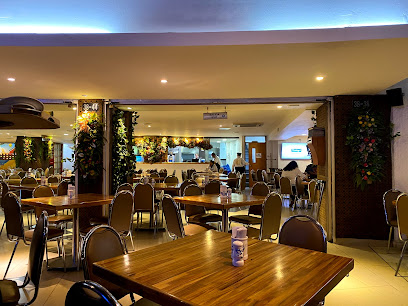
Restaurante La Matriarca
Discover the heart of Colombian cuisine at Restaurante La Matriarca in Medellín's vibrant El Poblado neighborhood.
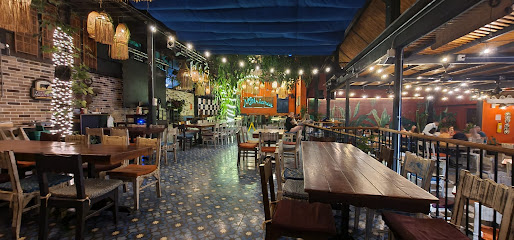
Alambique
Discover authentic Colombian flavors at Alambique in Medellín's El Poblado district - where tradition meets modern culinary art.
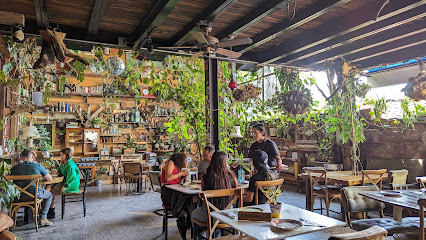
Carmen
Discover Carmen in Medellín: A fusion of local flavors and international cuisine awaits you in this elegant dining destination.
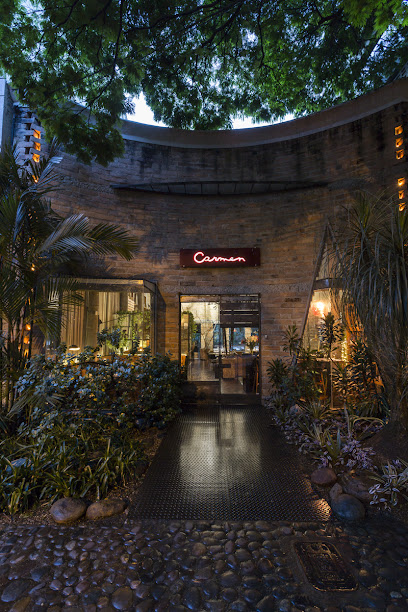
Restaurante El Cielo
Experience innovative Colombian cuisine at Restaurante El Cielo in Medellín's upscale El Poblado neighborhood.
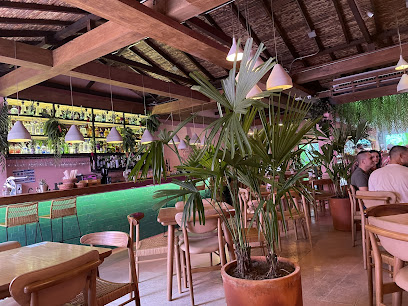
Seven Kitchen and Bar
Experience culinary excellence at Seven Kitchen and Bar in Medellín—where Asian meets Colombian flavors in a vibrant atmosphere.
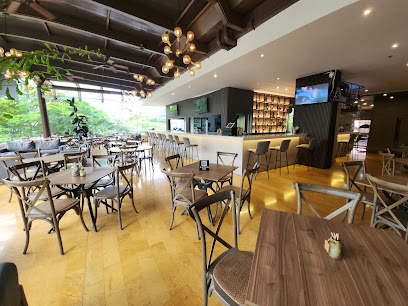
Restaurante Abbiocco
Experience authentic Italian flavors at Restaurante Abbiocco in Medellín's vibrant El Poblado district - where every meal is a culinary journey.
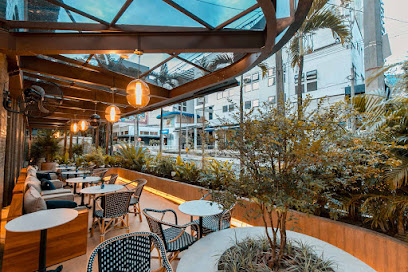
Herbario Restaurante
Discover the vibrant flavors of Colombia at Herbario Restaurante, where health meets culinary artistry in a stunning setting.
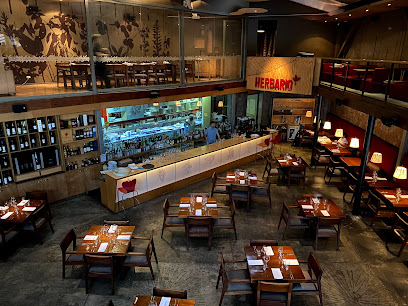
Canalla Medellin
Discover Canalla Medellin: A dynamic restaurant and bar blending Colombian flavors with vibrant nightlife in El Poblado.
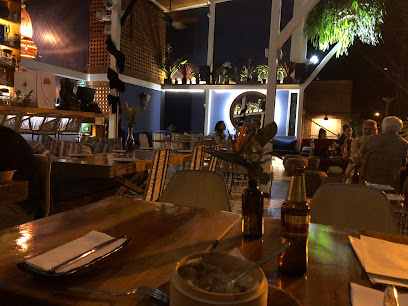
Real Eatery
Experience authentic Colombian cuisine at Real Eatery, where fresh ingredients meet vibrant flavors in the heart of Medellín's El Poblado.
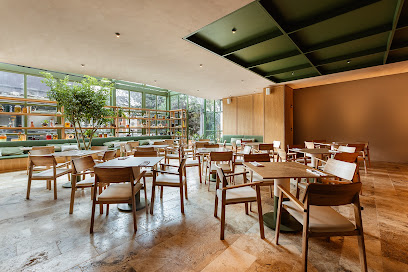
Markets, malls and hidden boutiques
Souvenirs Provenza Medellín
Discover the essence of Colombia at Souvenirs Provenza in El Poblado, Medellín, where unique crafts and local delicacies await every traveler.
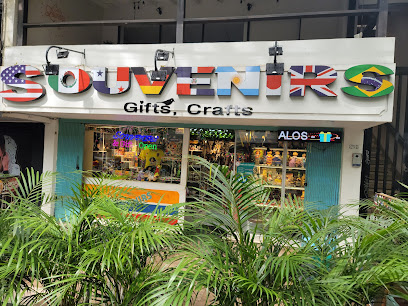
MAKENO.CO
Explore MAKENO.CO: A treasure trove of unique gifts, stylish clothing, and local handicrafts in the heart of Medellín's El Poblado.
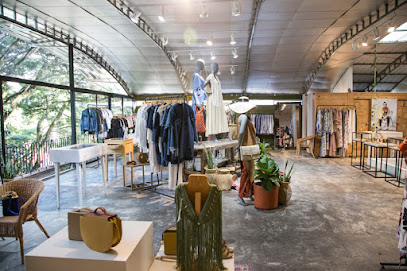
Nuestra Tienda Artesanal
Discover the vibrant spirit of Colombia at Nuestra Tienda Artesanal, a craft store in Medellín offering unique handmade treasures from local artisans.
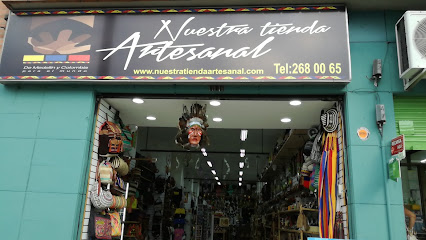
Ocho43 Tienda de diseño
Explore Ocho43 Tienda de Diseño, a unique gift shop in Medellín offering fashion accessories, clothing, and haute couture for every style.
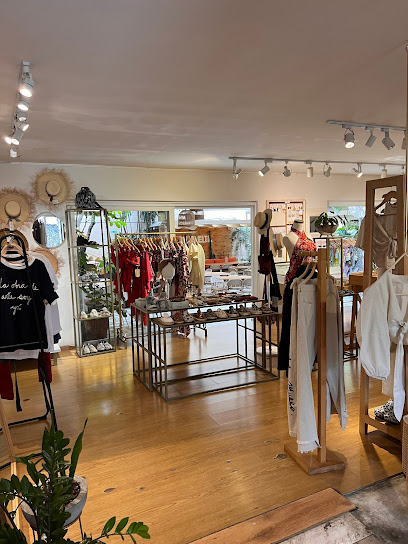
Primavera coffee & Shop - Vía Primavera
Explore a unique fusion of fashion and coffee at Primavera Coffee & Shop in the heart of Medellín's El Poblado district.
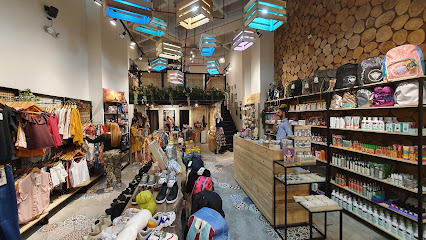
Kaperuza Boutique
Explore Kaperuza Boutique in El Poblado for a unique blend of contemporary fashion and local artistry in the heart of Medellín.
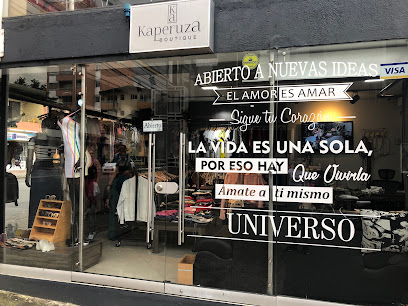
Medellin Gift Shop
Explore Medellin Gift Shop for unique Colombian fashion, artisanal goods, and a taste of local culture in El Poblado.
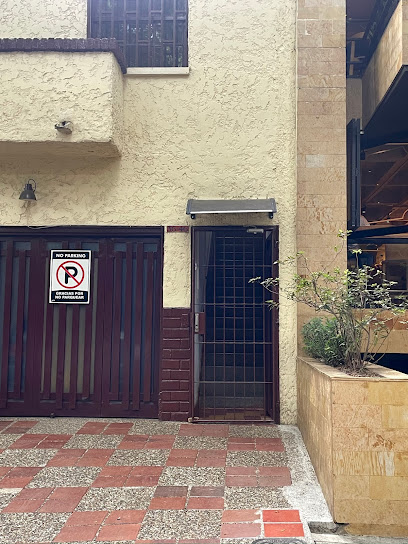
Candy Love
Discover the sweetest gifts and treats at Candy Love in Medellín's vibrant El Poblado district, where every visit is a taste of Colombian joy.
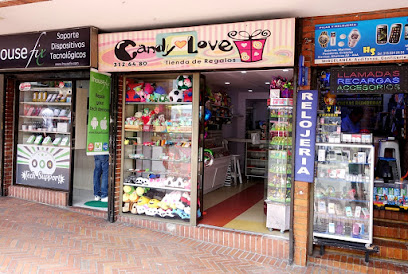
Artesanias De Mi Pueblo
Discover authentic Colombian crafts at Artesanias De Mi Pueblo, a must-visit gift shop in the heart of Medellín's El Poblado district.
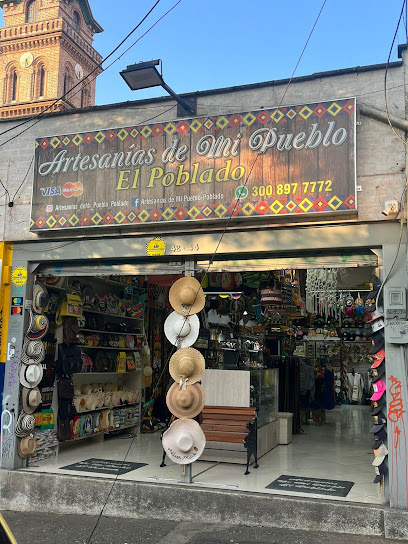
TE AMO MEDELLIN SOUVENIRS
Discover unique Colombian handicrafts and souvenirs at Te Amo Medellin Souvenirs, a gem in El Poblado, Medellín.
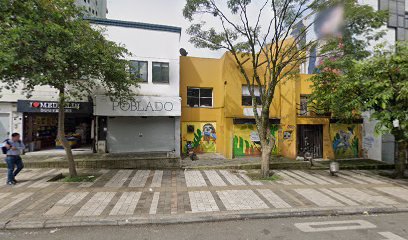
Essential bars & hidden hideouts
El Social Tienda Mixta desde 1969
Discover the vibrant atmosphere of El Social Tienda Mixta, where salsa dancing meets delicious Creole cuisine in the heart of Medellín.
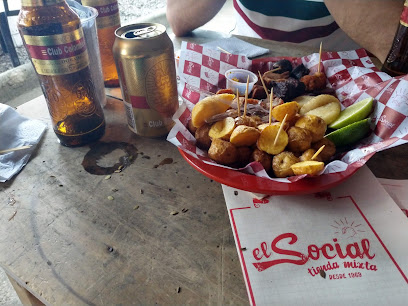
La Octava Bar
Experience the vibrant nightlife of Medellín at La Octava Bar, where great drinks, live music, and an electric atmosphere await.
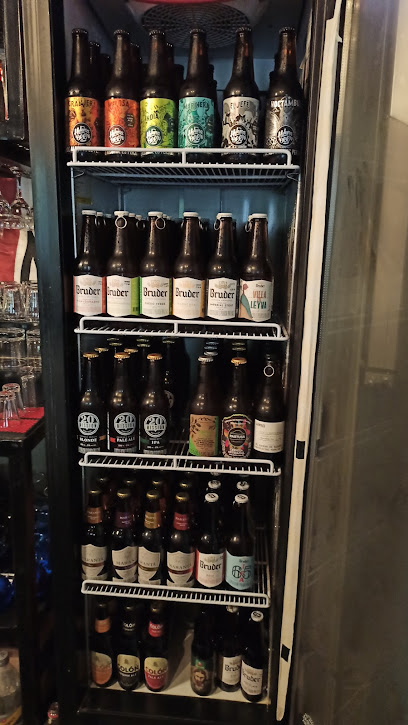
Trilogia Bar
Experience the vibrant nightlife of Medellín at Trilogia Bar, where exceptional cocktails and lively music create unforgettable moments.
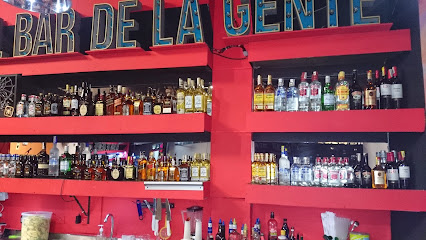
Vintrash
Experience the vibrant nightlife at Vintrash in Medellín—your go-to spot for cocktails, dancing, and unforgettable memories.
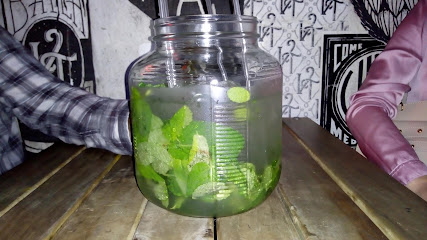
Envy Rooftop
Experience stunning views and fine cocktails at Envy Rooftop, the ultimate bar destination in El Poblado, Medellín.
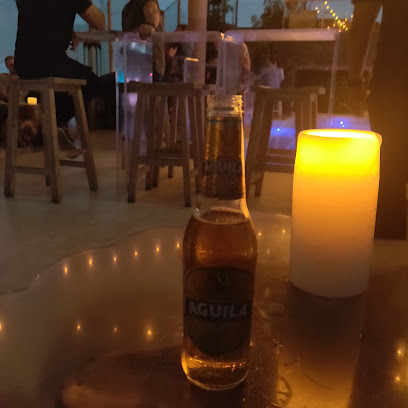
The Blue Bar
Experience the vibrant nightlife of Medellín at The Blue Bar in El Poblado, where stylish ambiance meets expertly crafted cocktails.
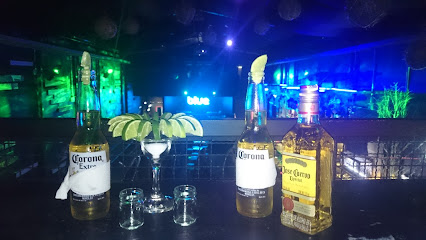
Mosquito Rooftop
Experience the vibrant atmosphere and stunning views at Mosquito Rooftop, Medellín's premier bar and restaurant in El Poblado.
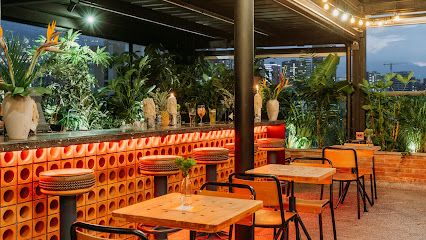
Donde Aquellos Bar
Discover the vibrant nightlife at Donde Aquellos Bar in El Poblado, Medellín, offering an array of cocktails and lively entertainment.
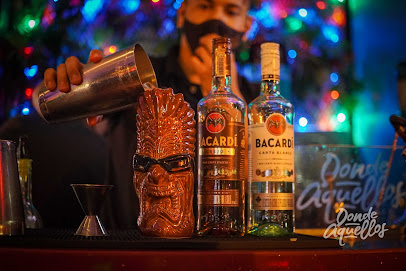
Chupitos Medellin | Bar Parque Lleras
Experience the vibrant nightlife of Medellin at Chupitos Medellin, where creative cocktails and a lively atmosphere await you.
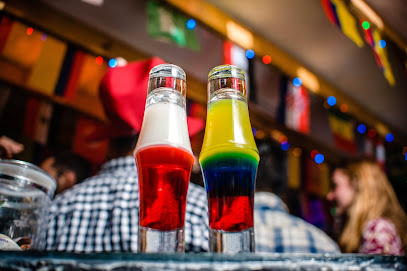
360 Rooftop bar
Experience breathtaking views and exquisite cocktails at 360 Rooftop Bar in Medellín's vibrant El Poblado.
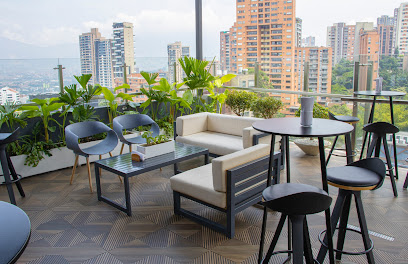
Local Phrases
-
- HelloHola
[oh-lah] - GoodbyeAdiós
[ah-dee-ohs] - YesSí
[see] - NoNo
[noh] - Please/You're welcomePor favor/De nada
[por fah-vor/de nah-dah] - Thank youGracias
[grah-see-ahs] - Excuse me/SorryDisculpe/Perdón
[dee-skool-peh/pehr-dohn] - How are you?¿Cómo estás?
[koh-moh ehs-tahs] - Fine. And you?Bien. ¿Y tú?
[byehn. ee too] - Do you speak English?¿Hablas inglés?
[ah-blahs een-glays] - I don't understandNo entiendo
[noh ehn-tyehn-doh]
- HelloHola
-
- I'd like to see the menu, pleaseMe gustaría ver el menú, por favor
[meh goos-tah-ree-ah vehr ehl meh-noo, por fah-vor] - I don't eat meatNo como carne
[noh koh-moh kahr-neh] - Cheers!¡Salud!
[sah-lood] - I would like to pay, pleaseMe gustaría pagar, por favor
[meh goos-tah-ree-ah pah-gahr, por fah-vor]
- I'd like to see the menu, pleaseMe gustaría ver el menú, por favor
-
- Help!¡Ayuda!
[ah-yoo-dah] - Go away!¡Vete!
[veh-teh] - Call the Police!¡Llama a la policía!
[yah-mah ah lah poh-lee-see-ah] - Call a doctor!¡Llama a un médico!
[yah-mah ah oon meh-dee-koh] - I'm lostEstoy perdido
[ehs-toy pehr-dee-doh] - I'm illEstoy enfermo
[ehs-toy ehn-fehr-moh]
- Help!¡Ayuda!
-
- I'd like to buy...Me gustaría comprar...
[meh goos-tah-ree-ah kohm-prahr...] - I'm just lookingSolo estoy mirando
[soh-loh ehs-toy mee-rahn-doh] - How much is it?¿Cuánto cuesta?
[kwan-toh kwehs-tah] - That's too expensiveEso es demasiado caro
[eh-soh ehs deh-mah-see-ah-doh kah-roh] - Can you lower the price?¿Puedes bajar el precio?
[pweh-dehs bah-har ehl pree-syoh]
- I'd like to buy...Me gustaría comprar...
-
- What time is it?¿Qué hora es?
[keh oh-rah ehs] - It's one o'clockEs la una
[ehs lah oo-nah] - Half past (10)Media (diez)
[meh-dee-ah (dyehs)] - MorningMañana
[mah-nyah-nah] - AfternoonTarde
[tahr-deh] - EveningNoche
[noh-cheh] - YesterdayAyer
[ah-yehr] - TodayHoy
[oy] - TomorrowMañana
[mah-nyah-nah] - 1Uno
[oo-noh] - 2Dos
[dohs] - 3Tres
[trehs] - 4Cuatro
[kwah-troh] - 5Cinco
[seen-koh] - 6Seis
[say-ees] - 7Siete
[syeh-teh] - 8Ocho
[oh-choh] - 9Nueve
[nweh-veh] - 10Diez
[dyehs]
- What time is it?¿Qué hora es?
-
- Where's a/the...?¿Dónde está un/el...?
[dohn-deh ehs-tah oon/ehl] - What's the address?¿Cuál es la dirección?
[kwahl ehs lah dee-rehk-syon] - Can you show me (on the map)?¿Puedes mostrarme (en el mapa)?
[pweh-dehs mohs-trahr-meh (ehn ehl mah-pah)] - When's the next (bus)?¿Cuándo es el próximo (bus)?
[kwan-doh ehs ehl proh-see-moh (boos)] - A ticket (to ....)Un boleto (para ....)
[oon boh-leh-toh (pah-rah)]
- Where's a/the...?¿Dónde está un/el...?
History of El Poblado
-
El Poblado's history begins in the late 19th century when it was established as a retreat for the wealthy citizens of Medellín. The neighbourhood was primarily agricultural, with coffee plantations and lush landscapes dominating the area. This laid the groundwork for El Poblado's transformation into a residential area for the affluent as the city began to expand.
-
By the mid-20th century, El Poblado underwent significant urbanization. The influx of people seeking better living conditions and opportunities due to Medellín’s industrial growth contributed to the development of housing, infrastructure, and services. This period saw the construction of modern amenities, making El Poblado one of the most sought-after districts in Medellín.
-
In the late 20th century and into the 21st century, El Poblado evolved into a cultural and social hub, known for its vibrant nightlife and culinary scene. The area hosts a variety of restaurants, bars, and cultural events, reflecting both local and international influences. This transformation has made El Poblado a popular destination for both tourists and locals alike.
-
In recent years, El Poblado has experienced gentrification, leading to rising property values and an influx of high-end developments. This change has sparked discussions about social inequality and the preservation of cultural heritage. Despite these challenges, El Poblado remains a symbol of Medellín's growth and resilience, blending its historical roots with contemporary life.
-
El Poblado is also home to numerous art galleries and public spaces, showcasing the work of local and international artists. The neighbourhood hosts cultural festivals and events that highlight its artistic community, further enriching the local culture. Notable sites include Parque Lleras, which acts as a focal point for social gatherings and nightlife, reinforcing El Poblado's status as a cultural epicenter in Medellín.
El Poblado Essentials
-
El Poblado is well-connected to the rest of Medellín through the Medellín Metro system. To reach El Poblado, take the metro to the 'El Poblado' station on the Line A (the green line). From other neighbourhoods, such as Laureles or Envigado, you can also take a taxi or use rideshare apps like Uber, which are widely available and relatively inexpensive.
-
El Poblado is a walkable neighbourhood with many attractions within easy reach. However, for longer distances, you can utilize the metro, which is efficient and cost-effective. Buses also serve the area, but they may be less intuitive for tourists. Biking is popular, and several rental shops offer bicycles. Be cautious of traffic when cycling, especially during peak hours.
-
El Poblado is generally one of the safest neighbourhoods in Medellín for tourists. However, like any urban area, it's wise to stay vigilant. Avoid walking alone late at night in less populated areas, especially near Parque Lleras, which can attract nightlife but also some unsavory activities. Areas such as Comuna 13 and some parts of downtown Medellín are known for higher crime rates, so exercise caution and consider guided tours in those areas.
-
In case of emergency, dial 123 for police or medical assistance. The main hospitals in El Poblado include Hospital del Norte and Clínica del Country. Always ensure you have travel insurance that covers emergencies. Pharmacies are also available throughout El Poblado for minor health issues, and English-speaking staff can often assist in tourist-frequented areas.
-
Fashion: Do dress casually but avoid overly revealing outfits, especially when visiting religious sites. Religion: Do respect local customs and traditions, particularly in churches. Public Transport: Do give your seat to elderly passengers. Don’t eat or drink on public transport. Greetings: Do greet with a handshake and maintain eye contact, which is a sign of respect. Eating & Drinking: Do enjoy local cuisine and accept offers of food. Don’t waste food or refuse hospitality, as it may be seen as impolite.
-
To experience El Poblado like a local, explore the lesser-known cafes and eateries away from tourist hotspots. Visit the local markets, like Mercado del Río, for authentic food and a vibrant atmosphere. Join a free walking tour to learn about the local history and culture. Engage with locals; they are typically friendly and eager to share their favourite spots in the neighbourhood.
Nearby Cities to El Poblado
-
Things To Do in Manizales
-
Things To Do in Pereira
-
Things To Do in Armenia
-
Things To Do in Ibagué
-
Things To Do in Bogotá
-
Things To Do in Tunja
-
Things To Do in Villavicencio
-
Things To Do in Cali
-
Things To Do in Sincelejo
-
Things To Do in Neiva
-
Things To Do in Cúcuta
-
Things To Do in Popayán
-
Things To Do in Cartagena
-
Things To Do in San Blas Islands
-
Things To Do in Panama City










